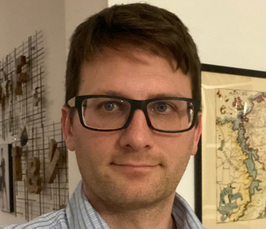Tuning of charge density waves in correlated metals – New results and insights
Max Planck Quantum Matter Seminar
- Date: May 12, 2022
- Time: 03:00 PM - 04:00 PM (Local Time Germany)
- Speaker: Matthieu Le Tacon
- Institute for Quantum Materials and Technologies, KIT
- Location: CFEL (Bldg. 99)
- Room: Seminar Room I-III, EG.076-080
- Host: Daniele Nicoletti

Transition metal compounds in which electrons from partially filled d-shells strongly interact with each other keep challenging the standard theory of solids as new, emergent exotic electronic orders are experimentally observed. Despite vastly different macroscopic properties, e.g. high temperature superconductivity (HTS), electronic nematicity or density waves to cite a few, the electronic phases encountered in these quantum materials can be almost degenerate and compete with each other within complex phase diagrams. The crystal lattice is more than a mere spectator. It can be used to tune the subtle interplay between charge, spin, orbital and lattice degrees of freedom that controls such competing electronic states and thereby to learn more about the microscopic mechanisms underpinning their stabilization.
In the first part of this talk, I will show how the combination of pressure (hydrostatic or uniaxial) tuning and x-ray spectroscopy has been used in the course of the last decade to gain fresh insights on the properties of charge density waves (CDW) in high temperature superconducting cuprates [1-3]. The second part of the talk, I will focus on BaNi2As2, which can be seen a non-magnetic analogue of the parent compound of Fe-based superconductors. In this material incommensurate and commensurate CDW have been recently reported and yield a new form of electronic nematicity which strongly couples to the crystal lattice.
[1] S. M. Souliou, et al. Phys. Rev. B 97 020503 (2018).
[2] H. H. Kim, S. M. Souliou et al. Science 362 1040 (2018).
[3] H. H. Kim, et al. Phys. Rev. Lett. 126 037002 (2021).